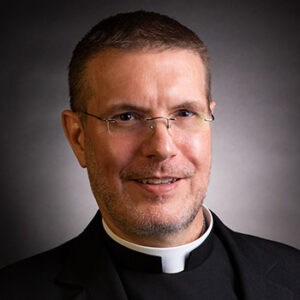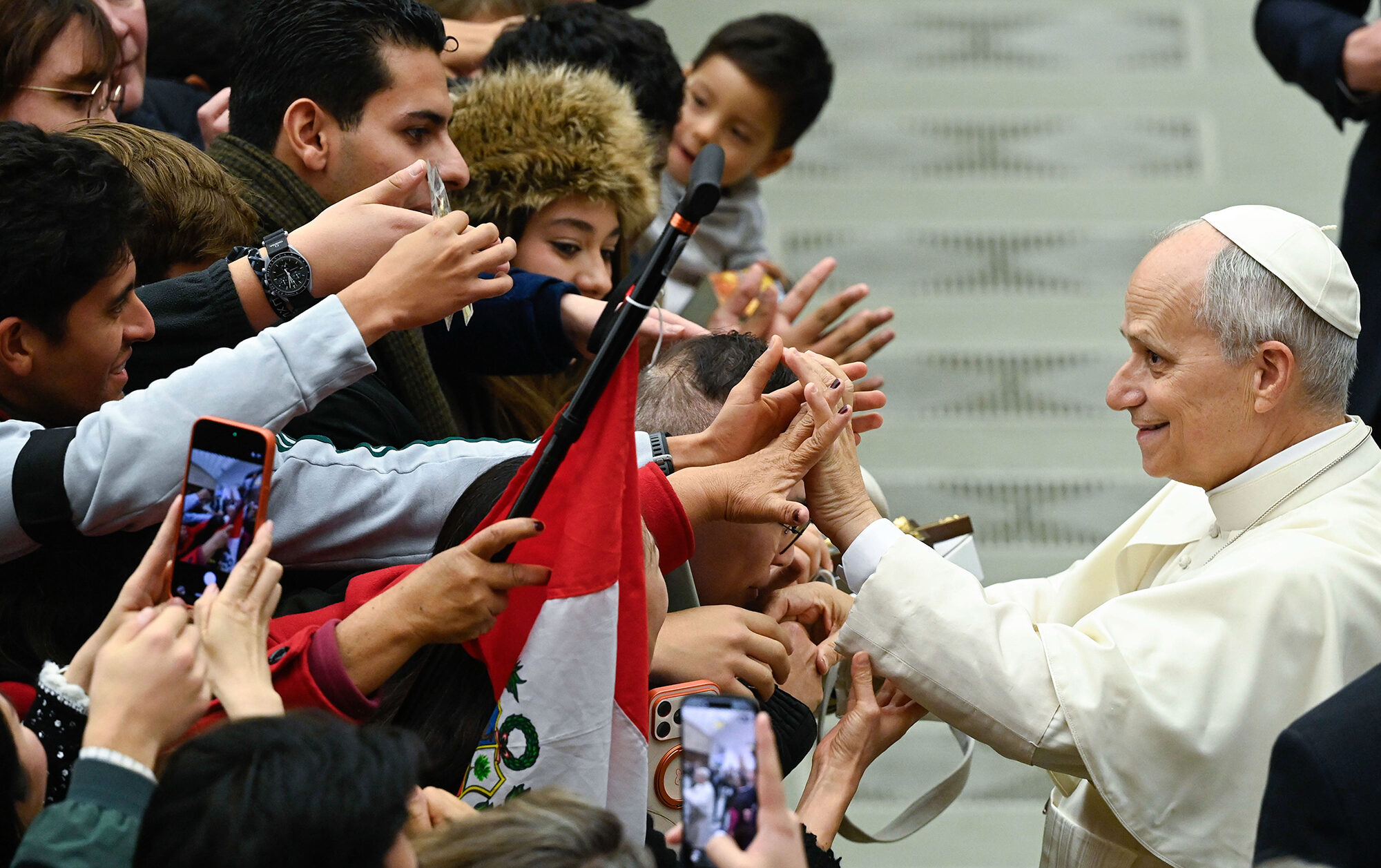DEAR FATHER | Love each immigrant as we would Christ
What is the Church’s position on immigration?

As with any issue, Jesus’ Gospel is the starting point of the Church’s position on immigration. On Dec. 28, we celebrate the feast of the Holy Innocents and recall that Jesus, Mary and Joseph fled to Egypt to escape a tyrannical king. The fact that Jesus began His life as a refugee is a poignant reminder of His solidarity with today’s refugees.
Pope Francis took up this theme in his 2017 Christmas homily: “So many other footsteps are hidden in the footsteps of Joseph and Mary. We see the tracks of entire families forced to set out in our own day…In many cases this departure is filled with hope, hope for the future; yet for many others this departure can only have one name: survival. Surviving the Herods of today who, to impose their power and increase their wealth, see no problem in shedding innocent blood…In his poverty and humility Jesus is the One who proclaims and shows that true power and authentic freedom are found in honoring and assisting the weak and the frail.”
The U.S. Conference of Catholic Bishops emphasizes a “biblical vision of love for strangers” for immigration issues. The bishops state that Scripture is filled with examples of entire peoples who migrated from one place to another. Justice for the immigrant even found its way into Mosaic Law: “You shall treat the alien who resides with you no differently than the natives born among you; have the same love for him as for yourself, for you, too, were once aliens in the land of Egypt” (Leviticus 19:33-34).
The bishops go on to highlight three basic principles of Catholic social teaching regarding immigration:
1) People have the right to migrate to sustain their lives and the lives of their families;
2) A country has the right to regulate its borders and control immigration;
3) A country must regulate its borders with justice and mercy.
(See USCCB’s “Catholic Social Teaching on Immigration and the Movement of Peoples.”)
The bishops acknowledge that no country is obligated to take in every person who wishes to relocate. However, decisions must be based on the common good of all and not simply personal self-interest.
The concept of justice and mercy regarding immigration is especially important for our time. What does it mean in concrete terms? It means that every person, regardless of his or her immigration status, is treated with respect and compassion. In a recent statement, the U.S. bishops called for the creation of a system that provides generous pathways to citizenship for immigrants living in our country. They stated that this system should offer “permanent relief for childhood arrivals, help families stay together, and welcome refugees.” Finally, they called for a system that keeps our borders secure and focuses enforcement on those who threaten public safety (e.g. gang members, drug smugglers and human traffickers).
We will one day be judged on how we welcomed the stranger into our midst (Matthew 25:37-40). As Catholics, we regard as mortally sinful any words or actions that misrepresent immigrants or garner fear of them for the sake of political gain. We oppose the development of unjust public policies that objectify immigrants as a problem to be solved. Finally, in the spirit of solidarity we befriend those from other countries and fully welcome them into our faith communities. In doing so, we will see that the Church in the United States is being enriched and renewed by our immigrant brothers and sisters. That has always been the case, and our current times are no different.
Father Scott Jones is the episcopal vicar for the Northern Vicariate of the Archdiocese of St. Louis.





